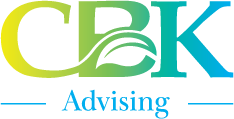Building Your Resiliency During Challenging Times

There is no question that these are challenging times. Even the most fearless leaders are, at the very least, “uncomfortable” as they try to balance COVID-affected budgets, personnel changes, and the new work-and-school-from-home lifestyle that has erupted. These days, everyone has something they’re dealing with that probably wasn’t a problem in January. Unfortunately, for many people these changes can be debilitating. Some people react by clamming up and isolating. Others people try to “busy” their way through upset and uncertainty. One thing we all need in order to stay on track during times like these is resiliency.
Merriam-Webster defines resilience as “the ability to recover from or adjust easily to adversity or change.” And, boy, have we ever seen some changes in the past several months! If you know anything about DISC profiles, you may recall that some profiles respond better to change than others. For instance, High D’s and High I’s usually handle change easily, while High S’s and C’s may require a lot of information up front and time to digest it, or they may become downright stubborn about it.
One of the roadblocks of resilience is fear, and with so much uncertainty in numerous aspects of our daily life, fearful feelings are not only common, they’re expected. In fact, the more uncertainty there is, the more our brains overreact and engage the limbic system where anxiety and fear come from. The good news is that we can override this tendency with something I happen to be pretty fond of – Emotional Intelligence!
Finding Resilience Through EQ
Using self-awareness, we can recognize when fears are looming, and consciously change how we react. Start by identifying where your anxiousness is coming from and create a positive, productive way to manage it instead of allowing a pessimistic mindset to emerge. You may want to list the irrational thoughts and fears on paper and recognize that those fears are not reality. Or, make a pact with yourself that each time you start to think negatively due to fear, you will stop and instead focus on a positive, productive “thought du jour” to keep you in a more optimistic attitude. If you are feeling resistant to change, identify why you’re resisting. Are you scared you will make a mistake or look incompetent? Or, do you feel the change threatens your position or autonomy? Take an honest look at yourself and you’ll likely find some insight about the emotions you are feeling and why, and then you can make a conscious effort to create a more comfortable way to address your fears and increase your resilience.
Self-regulation can also be a helpful tool for increasing resiliency. When life seems out of control, it is natural to want to hold on tighter and try to control everyone and everything. But, often, the best way to maintain control is to let it go. Recognize what you have control over and which things are beyond your grasp. And then, adjust your thoughts and behaviors so you stay focused on positive, rational responses. Realistically, your thoughts and actions are the primary things you have control of at any moment in time. So, learning how to effectively manage them during stressful situations will help you through even the most tumultuous events.
I think of Empathy and Social Awareness as gifts you give yourself, and they can be incredibly powerful during turbulent times. I am a big believer in the idea that one of the best ways to get out of a negative or depressed funk is to do something positive for someone else. And, when struggling with fear and uncertainty, I believe in using a similar approach to build resiliency. While financial, social, and political concerns may be creating a great deal of stress in your life, it’s important to recognize that many other people are experiencing an even larger negative impact. By engaging your empathy and recognizing the challenging circumstances your colleagues, neighbors, and community members are experiencing, you can then find a way to help ease their problems. Help others in a way that utilizes your unique talents, interests, and experience. This will help you put aside your own fears and problems while helping create a better situation for others. I don’t know anyone who isn’t in need of some help, encouragement, or motivation right now, and if we all do something positive for someone else, it can exponentially create more positive effects.
Practical Resilience
The ability to recover and adapt to change and adversity isn’t just connected to your DISC profile or Emotional Intelligence. There are also some practical things you can do to help increase your flexibility to life’s dilemmas such as: get enough sleep; exercise; minimize screen time; engage in activities that bring you joy; and eat foods that nourish your body’s immune system.
Change, adversity, fear, and uncertainty have been around since the beginning of time, and I believe everyone has the ability to develop their personal resilience skills. Now is a perfect time to practice!
What tools and methods will you use to help yourself recover and adapt?

